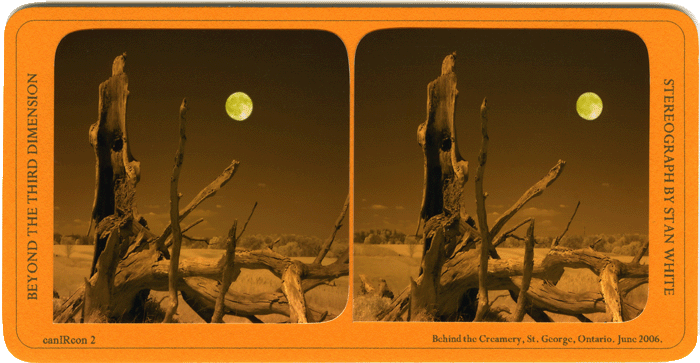THIRD STANZA in 3D
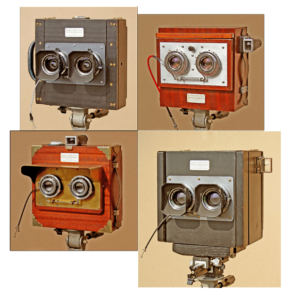
Homemade 5x7 Stereo Cameras
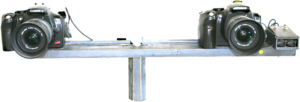
Infrared Digital Stereo Camera Rig.
Trees Near Sheffield Ontario
The first stereo cards I made were photographed on 5×7 sheet film in stereo cameras that were home made. The images were photographed with an infrared filter over the lens. The negatives were contact-printed.
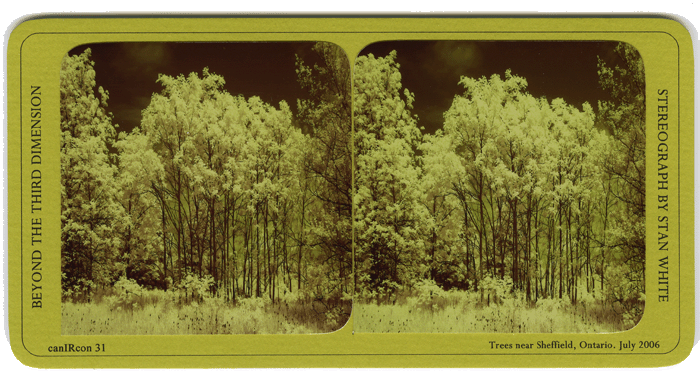
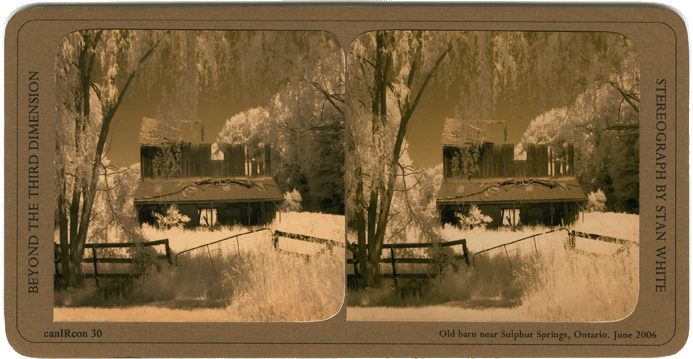
Old Barn Near Sulpher Springs
The reason for the use of infrared was because I intended to colour or tint the photographs. Since infrared reproduces foliage as very light, the resulting tones were ideal for laying on colour.
North Of St. George Ontario
The Stereo cards I made, were hand-tinted in the fashion of the early stereo card makers. The reason for pursuing this process was that it gave far more opportunity for creativity than if the photographs had been taken on colour film.
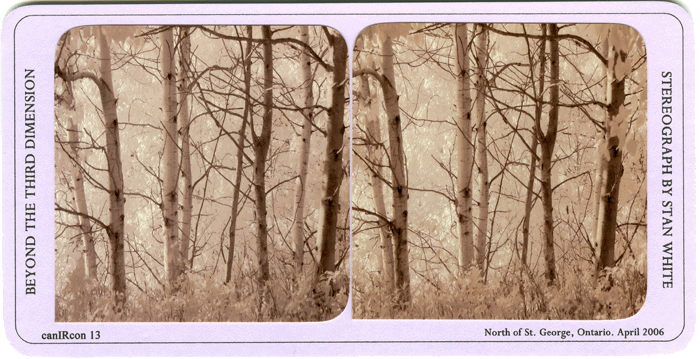
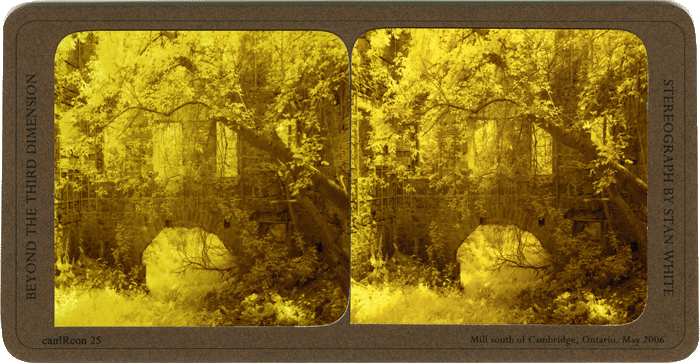
Mill South Of Cambridge
With the advent of the digital camera, I switched to two 35mm SLR cameras on a slide-bar and synchronized electronically. Both were modified to shoot in infrared only. An advantage of using two cameras was the stereo base could be altered.
Mill On The Grand Doorway
Normal stereo has a base of 1 in 35, that is to say, that if the subject is 35 feet away the cameras should be 12 inches apart. If the subject 35 miles away the cameras should be a mile apart. Conventional stereo cameras usually settle for about two and a quarter inches.
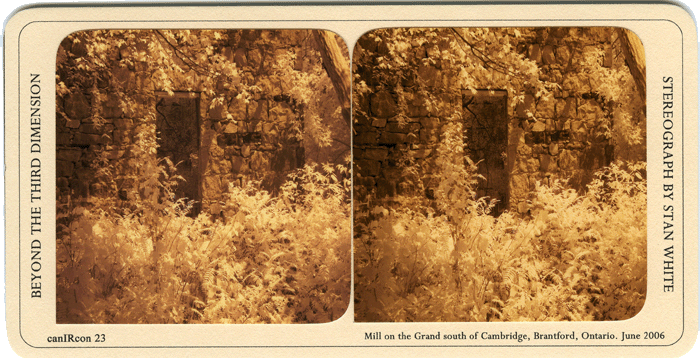
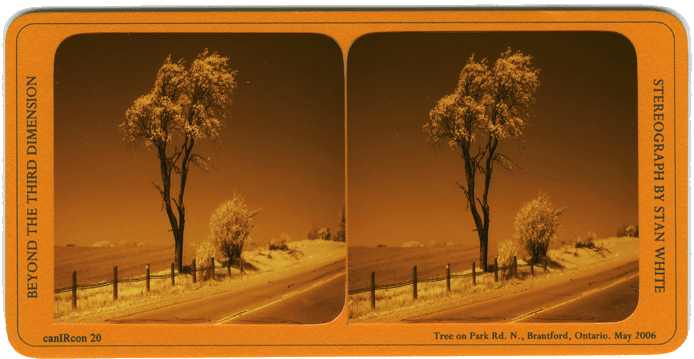
Tree On Park Road North
Since most of the stereo card images were scenic’s, I settled for a stereo base of eighteen inches. An additional advantage was that the two 35mm cameras mounted on a bar could be hand-held.
Harvest Moon
An even further advantage of two digital cameras on the slide-bar was that I could achieve more stereo depth than with the original film camera which only had an inter-ocular distance of about three and a quarter inches.
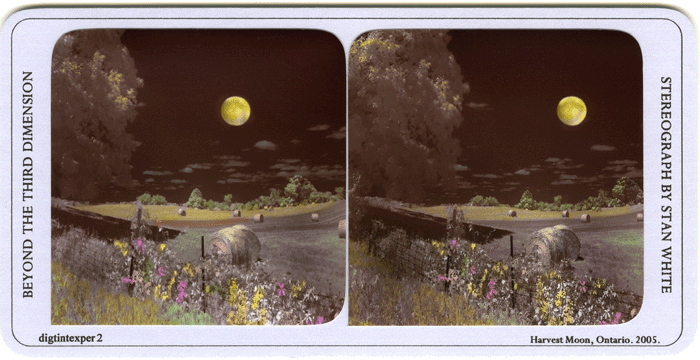
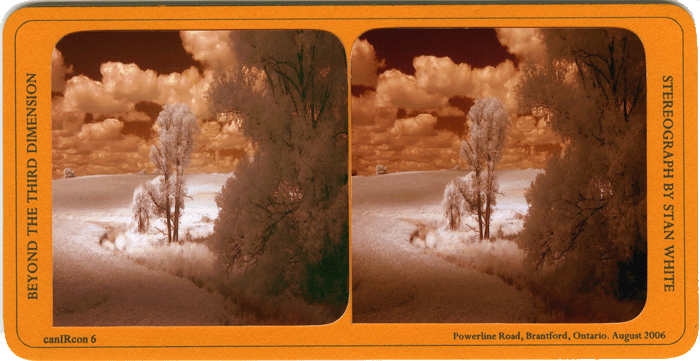
Powerline Road Bantford
The negatives from the digital stereo camera were essentially reddish in colour. Work had to be done in PhotoShop on density and contrast. Latterly, the images were coloured and tinted in PhotoShop.
World With Two Moons
Any text required, on the back or front of the card, was computer printed on paper and dry-mounted onto the card before the images, which were also dry-mounted.
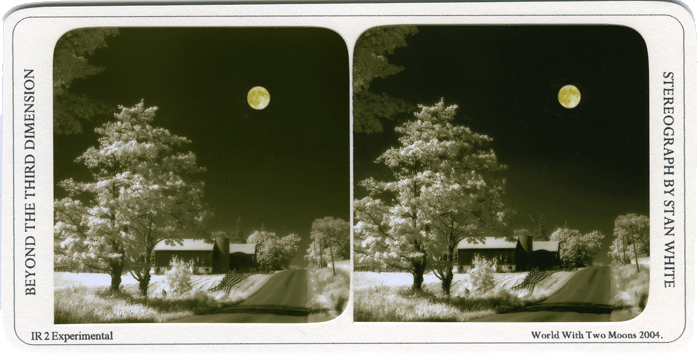
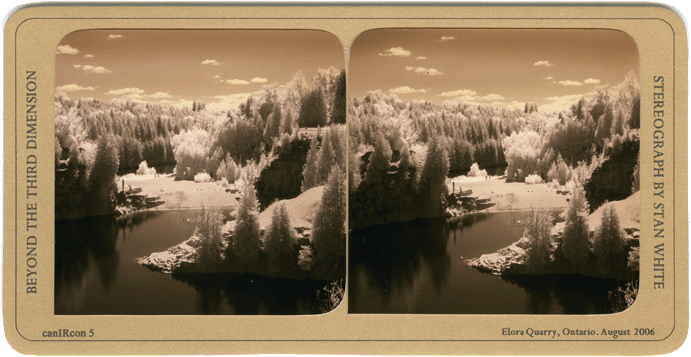
Elora Quarry
Included in the services offered by the Photographic Society of America Stereo Division, were stereo card circuits. Cards were mailed to other stereo card makers who, in turn, would comment on them and mail them on. Many of these cards found their way onto these circuits.
Barn on Shellard Lane
Another typical image that is tinted on an infrared base. There are still a few photographers making stereo cards, most are members of the Photographic Society of America, Stereo Division. Whether or not this continues, depends on if the younger photographers find the genre attractive. Stereo cards of an earlier age will always be sought after by collectors.
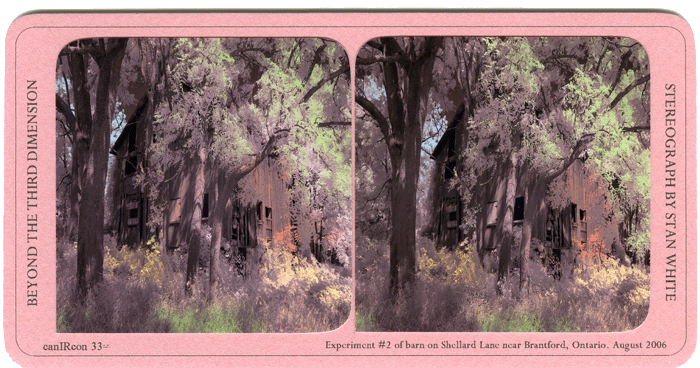
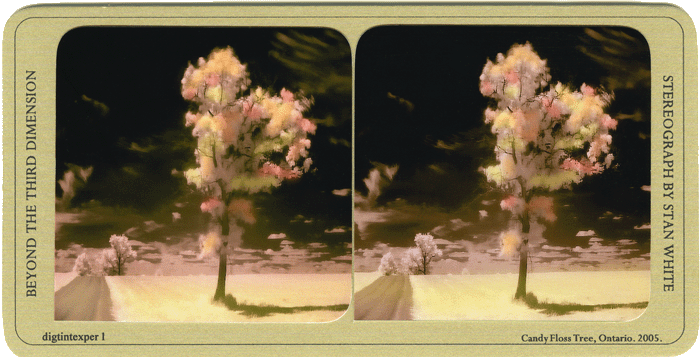
Candy Floss Tree
How a change in colour can change the reality of an image, the challenge of expectation. Change even heaven to red and it becomes hell.
Swamp North of St. George
Depending on the size that you are viewing these images, you should be able to free-view them in 3D. Focus your eyes on the image while keeping the accommodation of your eyes as though you are looking at infinity. It is a little tricky but most people can do it, with practice.
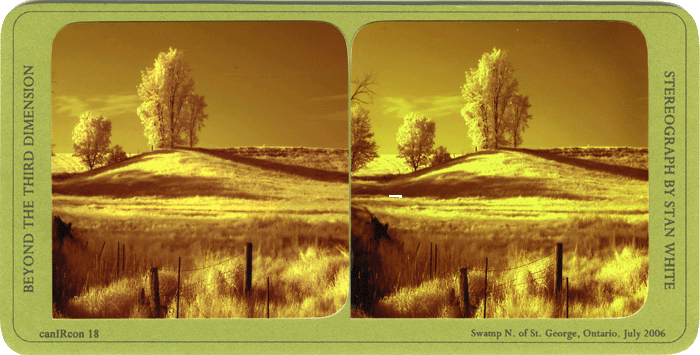
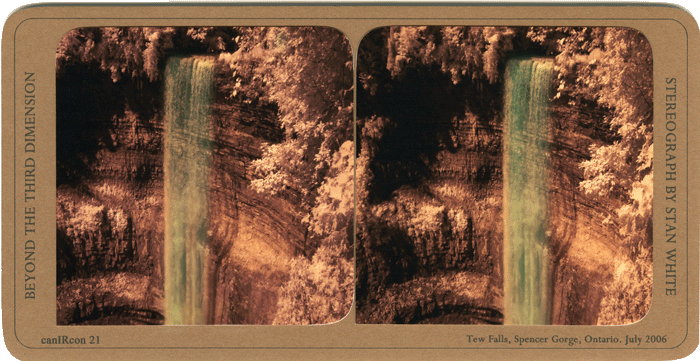
Tew Falls
A beauty spot, once wild but over the past few years is becoming commercialized.
Stream East of St. George
This is a scene that has every appearance of having been shot in the dead of winter. In reality, it is an infrared shot taken in the afternoon of a Summer’s day.
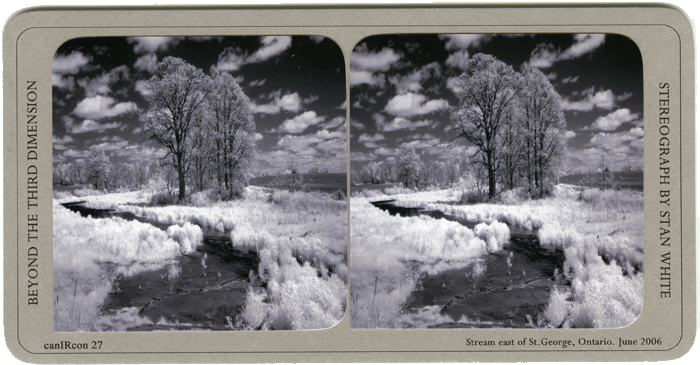
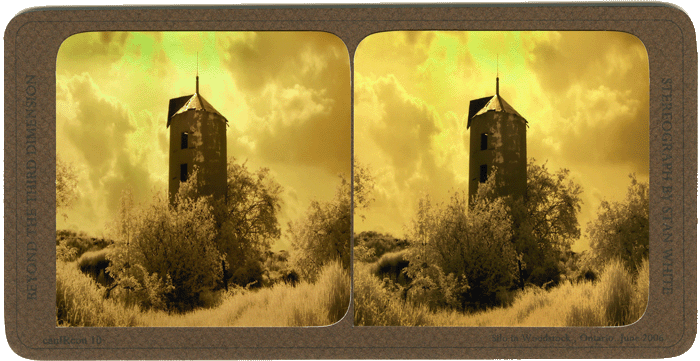
Silo
A simple farm silo, yet our childhood, influenced by fairy towers, makes this a mystery.
Behind the Cemetery
A normal farm scene without remarkable characteristics, even a field swamp exhibits an ashen beauty. Chlorophyll laden grass and deciduous trees blind with Infrared, while sun bleached posts cannot reflect the heat of day. Sky’s are dark but clouds burst with intensity. Ink black water flows and heat shadows form in curious and unexpected geometries.
